COSMETIC DENTISTRY
DENTAL CROWNS
What is a dental crown?
A dental crown is a tooth-shaped cap. Dentists use crowns to restore weak, broken or decayed teeth.
A crown fits over your entire tooth, like a snug hat. To ensure a proper fit, a dentist will need to remove a small amount of enamel before bonding your new crown in place.
Dental technicians craft crowns from a variety of materials, including resin, metal and porcelain.
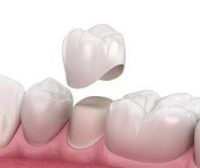
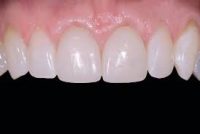
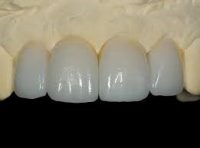
When would you need a dental crown?
Crowns serve several purposes. You may need a dental crown to:
- Strengthen a weak tooth.
- Protect and support a cracked tooth.
- Restore a worn-down or broken tooth.
- Hold a dental bridge in place.
- Cover a severely stained or discolored tooth.
- Cover a root canal -treated tooth.
- Cover a dental implant.
Types of dental crowns we offer at Bridgeland Dental Care
There are many types of dental crowns. The kind that’s right for you depends on your personal preferences and unique oral health needs.
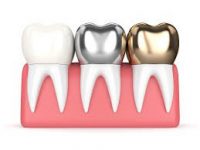
All-ceramic or porcelain crowns
All-ceramic or porcelain crowns mimic the appearance of tooth enamel more than any other crown type. They’re also a good choice if you have metal allergies.
Lab technicians use many different materials to make ceramic crowns, but one of the most popular is zirconium dioxide. Zirconia crowns are extremely durable and can withstand heavier forces than other types of ceramic crowns. They’re also gentle on your opposing teeth, resulting in less enamel wear.
Metal crowns
Dental technicians use several metals to make dental crowns, including gold, palladium, nickel and chromium. Metal crowns rarely chip or break, last the longest in terms of wear and only require a small amount of enamel removal. They can also withstand biting and chewing forces.
The metallic color is the main drawback of this type of crown. Metal crowns are a good choice for out-of-sight molars.
Procedure Details
What happens during a dental crown procedure?
Dental crown placement usually requires two appointments:
FIRST VISIT
- Preparing your tooth. To prepare your tooth for a crown, your dentist will need to remove some of your natural enamel. This makes space for your new crown and ensures that it will stay in place once bonded. Your dentist may also use a filling material to build up certain parts of your tooth. During this step, the main goal is to create a strong foundation for your new crown.
- Dental impressions. Next, your dentist will take impressions of your teeth. These may be physical impressions taken with a putty-like material or digital impressions taken with a handheld scanner. At Bridgeland Dental Care we use mostly digital impressions with our high-tech scanner, we will then send these impressions to our dental lab. There, a technician will use them to create your custom dental crown.
- Temporary crown placement. It usually takes one to two weeks for a dental lab to make your new crown. While you wait on your final crown, your dentist will place a temporary one. Temporary crowns are usually made of resin or acrylic.
SECOND VISIT
When the lab finishes your new crown, they’ll send it back to our office. During a second office visit, your dentist will:
- Remove your temporary crown.
- Check the shape, color and fit of your new crown.
- Bond the new crown to your tooth using a strong dental cement.
What are the benefits of dental crowns?
The most notable advantage of a dental crown is that it can prolong the life of a natural tooth. Specifically, crowns can:
- Treat worn, broken or decayed teeth.
- Protect teeth from erosion (wear and tear).
- Improve chewing function.
- Enhance your appearance.
What are the disadvantages of dental crowns?
There are also some disadvantages. For example, crowns:
- Require some removal of natural tooth enamel.
- May cause teeth sensitivity, especially in the first few weeks after placement.
- Can break or fracture over time. (very rare)
PORCELAIN VENEERS & LAMINATES
VENEERS
Dental veneers are custom-made shells that fit over the front surfaces of your teeth. They conceal cracks, chips, stains and other cosmetic imperfections. Veneers are one of the most common cosmetic dentistry treatments. There are several types of veneers available, depending on your specific goals. Our team is happy to provide porcelain veneers in Calgary to our patients so they can achieve the smile of their dreams.
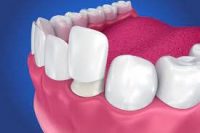
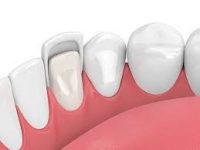
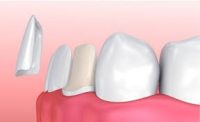
What are veneers?
Veneers are coverings that fit over the front surfaces of your teeth. Technicians use high-quality dental materials, like tooth-colored composite or porcelain, to create them.
Dental veneers are cosmetic in nature. They can conceal a wide range of aesthetic imperfections, including chips, cracks, gaps, tooth discoloration and more.
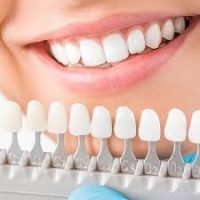
Who needs dental veneers?
Anyone who wants to enhance the appearance of their smile can explore veneers. These dental restorations can camouflage:
- Chipped or broken teeth.
- Diastema (gaps or spaces in your smile).
- Stains that don’t improve with teeth whitening.
- Teeth that are too small.
- Misshapen teeth.
It’s important to note that veneers are only an option if you’re free of extensive cavities and gum disease. If you have serious oral health issues, you should address those first before exploring cosmetic treatments.
If you are interested in porcelain veneers, please contact our team at Bridgeland Dental Care. We are happy to provide you with porcelain veneers.
DENTAL LAMINATES
Dental laminates have the same function as veneers and sometimes the two terms are used interchangeably. Laminates differ in the sense that they are much thinner and require less amount of enamel to be removed for them to be placed.
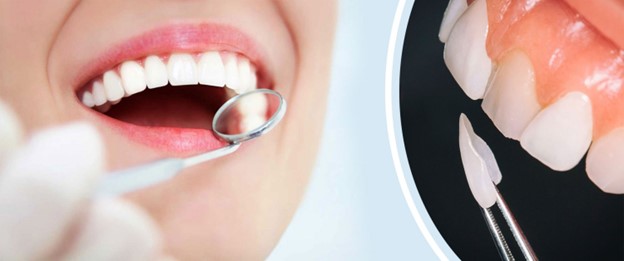
Laminates can be referred to as an advanced porcelain veneer as they both share the same function and benefits. However, when placing laminates, the enamel and structure of the tooth do not have to be altered. This may be better in the long term for the health of the tooth, if you are a good candidate for dental laminates.
Laminates are only as thick as a contact lens and a thinner alternative to porcelain veneers.
WHICH IS BEST? IT ALL DEPENDS!
The decision ultimately lies in the hands of the patient and the dentist with regards to which option is better. This is because the needs of each patient vary and one option usually outweighs the other when personal needs, and other factors are applied.
Dental veneers and dental laminates are great options when it comes to having a smile enhancement. Visit us at Bridgeland Dental Care to find out if you are a suitable candidate and which option would be best for you!
TEETH WHITENING
What is a Teeth Whitening?
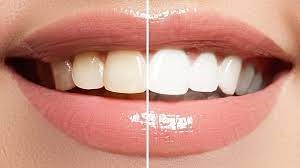 Teeth whitening is a procedure to lighten the color of your teeth and remove stains. You can have it done at a dentist’s office, or do it yourself at home. At Bridgeland Dental Care, we offer both types of teeth whitening.
Teeth whitening is a procedure to lighten the color of your teeth and remove stains. You can have it done at a dentist’s office, or do it yourself at home. At Bridgeland Dental Care, we offer both types of teeth whitening.
Tooth whitening is most often done using peroxide-based bleaching agents. At-home systems contain from 3% to 20% peroxide (carbamide or hydrogen peroxides). In-office systems contain from 15% to 43% peroxide.
Tooth Discoloration
You have tooth discoloration when your teeth are stained or darkened. It might affect the whole tooth or look like lines or spots on the tooth’s surface. There are two basic types of tooth discoloration:
- Intrinsic, or internal, discoloration happens inside the tooth. Things that can cause this type of discoloration include aging, tooth injuries, some health conditions, and certain medications.
- Extrinsic, or external, discoloration happens when substances like foods, beverages, or tobacco stain the tooth’s surface. Poor oral hygiene can also cause it.
In-Office Teeth Whitening
Teeth whitening done in our office can get teeth brighter faster. The bleaching solution is usually much stronger than that in at-home kits. Also, the dentist can use heat, light, or a combination of the two to speed and intensify the whitening process.
Teeth generally get three to eight shades brighter and it is done in a single 2-hour appointment.
At-Home Teeth Whitening
With this tooth whitening option, we provide you with a custom-made tray and whitening material. Tray is filled with a peroxide-based bleaching gel or paste and placed over the teeth at home.
Our team will provide instructions on how to use this whitening system depending on the type of the bleaching material.
COSMETIC and THERAPEUTIC BOTOX
At Bridgeland Dental Care, we are pleased to offer botox treatment to all Calgarians.
Botox is an injectable treatment that is administered to specific points in the face to temporarily relax your muscles.
Cosmetic Applications of Botox
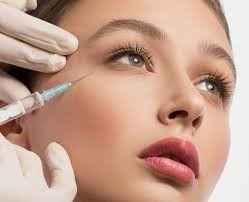
Botox brings a vivid difference in the appearance of moderate to severe dynamic wrinkles, those wrinkles you can’t avoid when you make certain facial expressions. Injections are administered to temporarily relax your muscles and create a younger, smoother look.
Therapeutic Applications of Botox
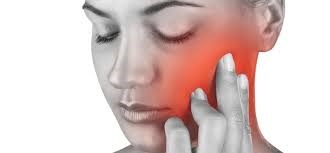
Botox can also be used for therapeutic purposes.
Since its primary function is to relax facial muscles, it can help relieve pain from tight jaws and other facial muscles that cause tension and headaches.
Before we go into how Botox works for TMJ disorders, let’s discuss what TMJ is.
Your temporomandibular joint acts as a hinge for your mouth, letting you eat and talk freely.
But:
When you have TMJ disorder, you may experience:
- Sore cheeks and jaw
- Teeth clenching or grinding
- Neck and shoulder pain
- Tension headaches
- And more
Remember:
Botox relaxes muscles.
In patients suffering from TMJ disorder symptoms, Botox helps relax tense jaw muscles and alleviate pain.
It’s typically recommended as a complementary treatment to other TMJ disorder therapy, but Botox may be all you need for certain symptoms!
How Safe is Botox?
Cosmetic Injectables have been on the consumer market with full FDA and Health Canada approval for over 10 years and has been extensively researched in over 2,400 medical studies. Botox is considered completely safe if administrated correctly by a trained professional.
Does Botox Have Any Side Effects?
Cosmetic injectables do not come with many side effects, and if you do experience any symptoms, they will likely be mild. Potential side effects of cosmetic injectables include:
- Redness
- Swelling
- Allergic reactions
- Inflammation
- Discomfort
- Dizziness
Interested in Botox?
Our team at Bridgeland Dental Care is happy to offer Botox to our patients whether they want to undergo treatment for cosmetic or therapeutic purposes. If you are interested in learning more about this treatment and how it can help you, please contact our clinic to book a consultation today!
